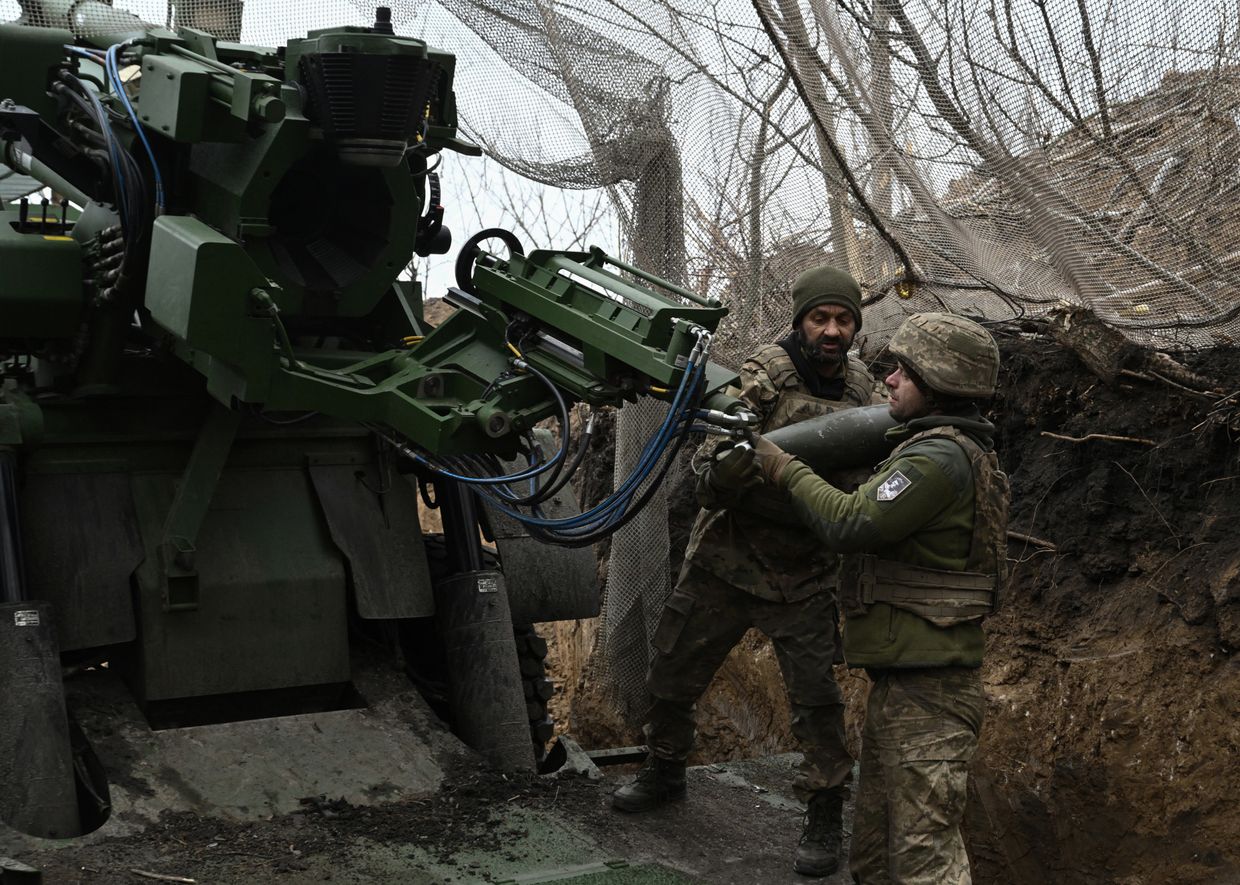In an unprecedented move, President Volodymyr Zelensky imposed sanctions on his predecessor and key political rival, lawmaker Petro Poroshenko.
Poroshenko, who was elected president in 2014, lost his reelection bid in 2019 to Zelensky in a bitter campaign that often included personal attacks.
The rivalry between the two did not subside after the election.
"We are defending our state and restoring justice. Everyone who destroyed Ukraine's national security and helped Russia must be held accountable. The billions that were earned by actually selling Ukraine, Ukrainian interests, Ukrainian security must be blocked and must work to protect Ukraine," Zelensky said in an evening address on Feb. 12, referring to Poroshenko, whose net worth was over $1 billion.
The sanctions came as a number of Ukrainian politicians appeared to have begun election preparations following looming peace talks and a push from the U.S.
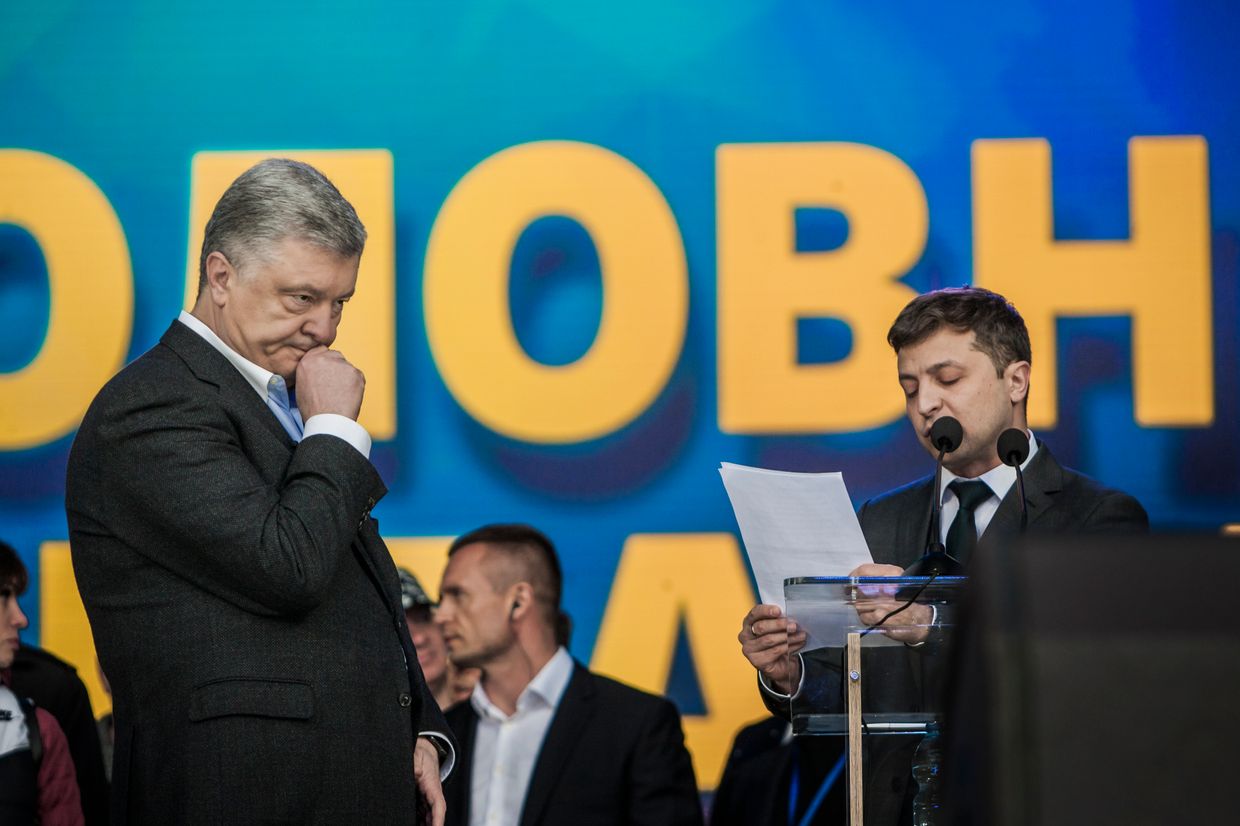
Along with Poroshenko, four more tycoons faced sanctions: oligarch Ihor Kolomoisky, multimillionaire Kostiantyn Zhevago, former PrivatBank co-owner Hennadii Boholyubov, and Viktor Medvedchuk, a former pro-Russian lawmaker accused of high treason.
Kolomoisky is now behind bars, while the others have fled Ukraine or ended up in Russia. None of them hold power in Ukraine at this time. All have been charged with a variety of crimes in the past, ranging from money laundering to high treason.
The sanctions froze all assets held by the targeted individuals in Ukraine and blocked them from conducting financial transactions, among other restrictions. The decree states that the measures are indefinite.
Poroshenko called the sanctions against him "politically motivated" and "unconstitutional."
The Kyiv Independent explains why Poroshenko was targeted now, what he is set to lose and what the ex-president's future might look like.
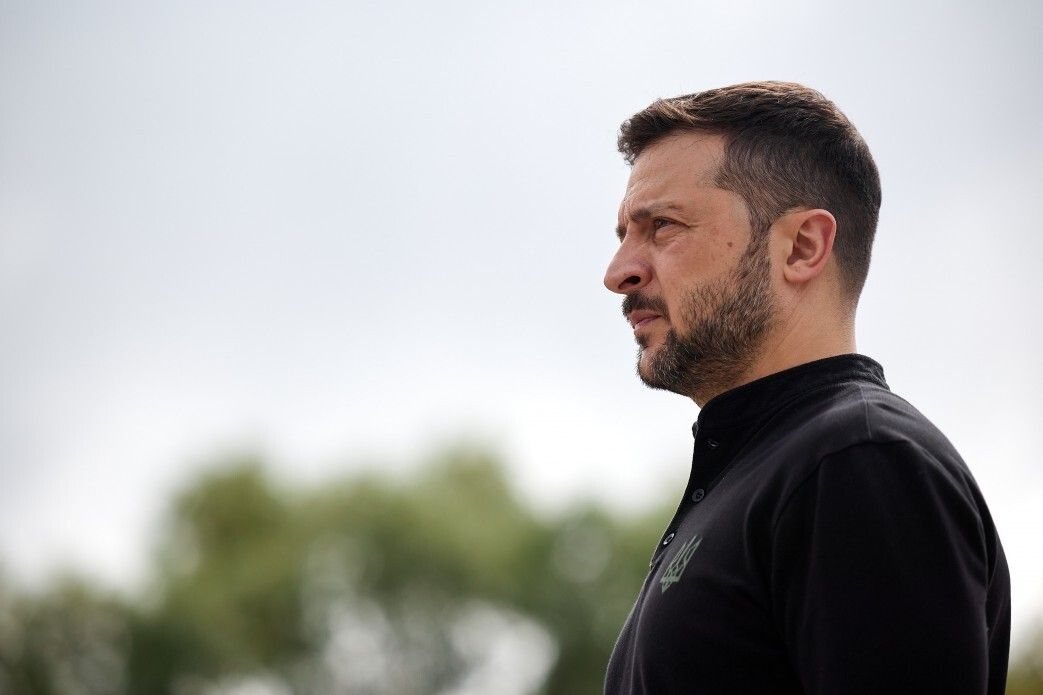
What is Poroshenko charged with?
Poroshenko said that, as of late January, around 130 criminal cases had been opened against him. Most of them were launched after appeals by people who were either convicted or fled to Russia, he said. That's not exactly true.
Prior to the full-scale invasion, in December 2021, the former president was charged with high treason for what the prosecution said was aiding Russian-controlled militants in the occupied parts of Donetsk Oblast. He was accused of organizing the supplies of coal from Russian-occupied areas to Ukrainian companies in 2014-2015. The Russian-occupied Donetsk Oblast was a heavily industrialized region and the source of the country's coal and other critical materials.
If found guilty, Poroshenko could face 10 to 15 years in prison.
Besides Poroshenko, the coal supplies case involves Medvedchuk, who allegedly negotiated with both Russia and its proxies, and Poroshenko administration on the coal supplies.
Poroshenko has denied wrongdoing.
After Moscow launched its full-scale invasion, the investigation of criminal cases against the ex-president was halted. Three years later, the suspended criminal case was one of the official reasons for imposing sanctions against Poroshenko.
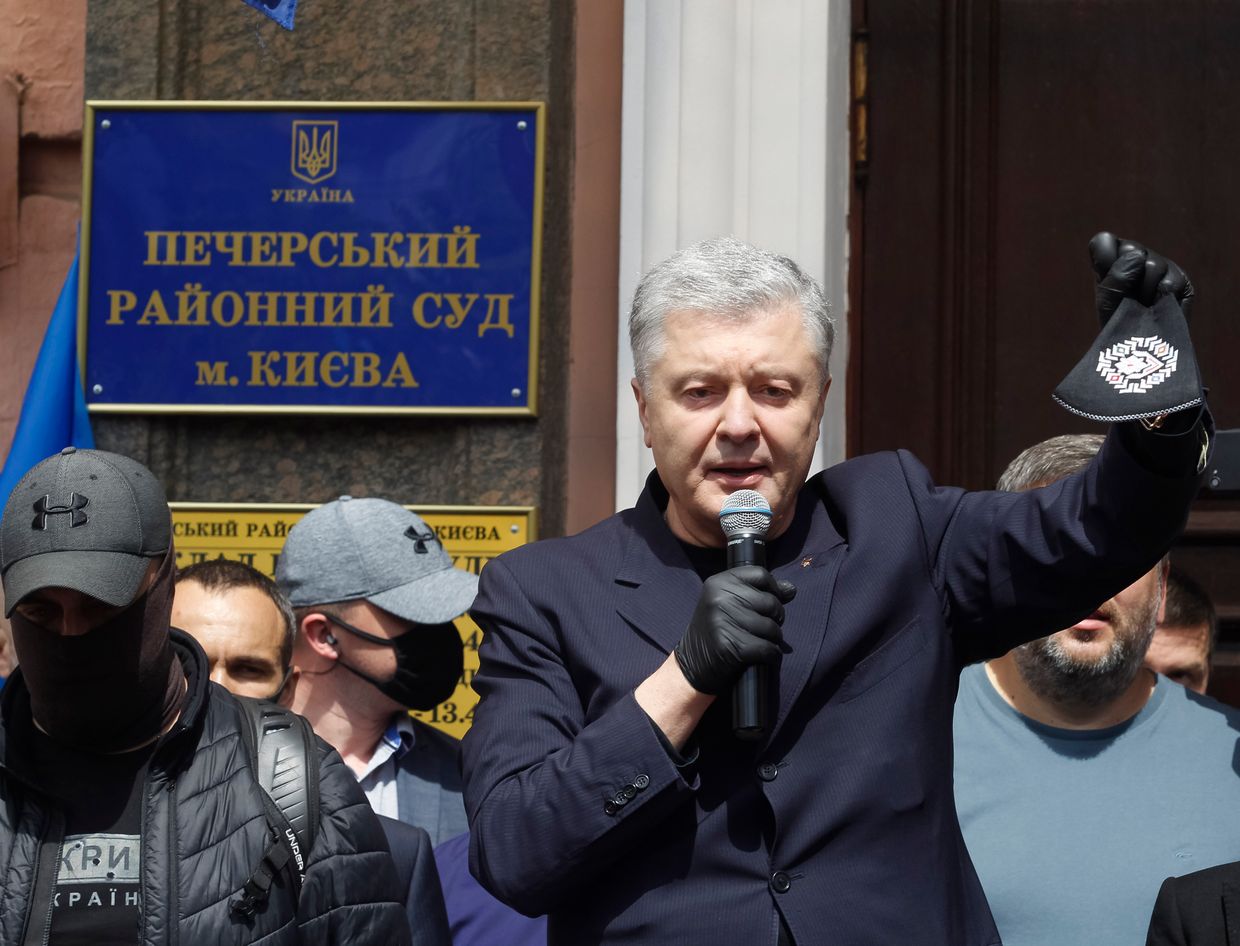
Citing their sources in law enforcement, Ukrainian media outlets have given a variety of other reasons for Poroshenko to be punished by authorities.
The reasons range from Poroshenko's political activities, like his involvement in the creation of the now-banned Party of Regions in 2000, as well as being a minister under Pro-Russian President Viktor Yanukovych in the early 2010s.
Another reason given was the fact that Poroshenko was slow in selling his business in Russia and the occupied parts of Ukraine following the start of Russia's war in 2014.
The Roshen factory, a confectionery plant owned by Poroshenko, in Russia's Lipetsk halted operation in 2017 and was nationalized by Russia in 2024.
"These are events that happened in 2000, 2010, 2014. It's ridiculous to accuse Poroshenko of creating the Party of Regions in 2000," Professor Oleksiy Haran, research advisor at the Democratic Initiatives Foundation, told the Kyiv Independent.
"I don't want to present Poroshenko as an angel. But, unfortunately, it (sanctions) harms Ukraine's prestige abroad," he added.
Zelensky also accused Poroshenko of circumventing billions from Ukraine and did not rule out that sanctions could be lifted after he "returns the withdrawn funds" to the budget.
Poroshenko's fortune
For years, Poroshenko was listed among the wealthiest people in Ukraine. He first became a billionaire in 2012, according to Forbes.
Poroshenko and his son, Oleksiy Poroshenko, ranked third on the list in 2023 with a net worth of $954 million, according to NV media outlet.
A year later, only Poroshenko's son remained in third place on the list of the richest, with a fortune estimated at $1.2 billion.
Some of the former president's assets were frozen in January 2022 following treason charges. However, Poroshenko's largest businesses remained untouched. After losing the 2019 presidential election, he began transferring his assets to his son, Oleksiy.
The key asset of the Poroshenko family is the Roshen confectionery, which saw a profit of Hr 5.64 billion ($135 million) in the first half of 2024 alone, according to NV. Oleksiy Poroshenko also now owns Ukrprominvest-Agro, one of Ukraine's leading agricultural companies.
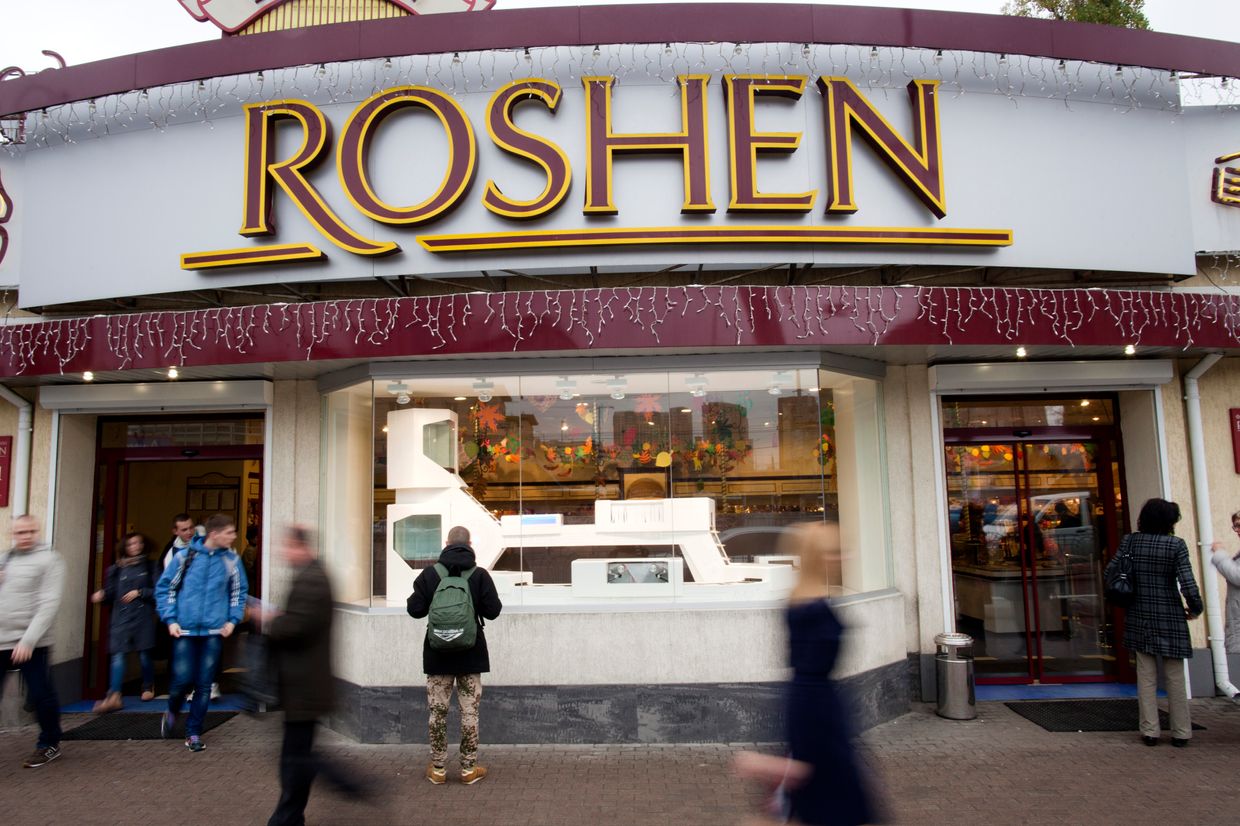
According to YouControl, Petro Poroshenko remains the beneficiary of several companies, including the Kyiv-based International Investment Bank.
It is unclear which of Poroshenko's assets can be affected by sanctions.
Poroshenko also owned Channel 5 and Pryamyi TV channel until 2021. He sold them to his allies to avoid being labeled as an "oligarch." The channels are still loyal to Poroshenko and harshly critical of Zelensky.
Both channels have not been part of the Ukrainian TV marathon — a pool of five TV broadcasters formed under the government's directive to share resources and cover the war. Channel 5 and the Pryamyi TV channel were also deprived of digital broadcasting, which some saw as a violation of freedom of speech.
Ukrainian political analyst Volodymyr Fesenko said that the sanctions against prominent businessmen are "a reminder of the war against the oligarchs." In 2021, Zelensky's anti-oligarch laws created a register of individuals, establishing a legal definition of an oligarch.
The process stalled due to the start of the all-out war and remained largely forgotten since.
"This is a warning to big business. That in a time of war, even inside the country, there will be tough methods for those who will launch any information or political campaigns against the government," Fesenko added.
Political persecution or justice?
The legality of sanctions against Ukrainian citizens has always been questioned by observers. Yet, the majority of Ukrainians have backed the sanctions that were slapped on notorious figures and pro-Russian politicians.
When asked, 31% of Ukrainians answered that they see sanctions against Poroshenko as an attempt to divert public attention from the difficult battlefield situation, a poll conducted by the Kyiv International Institute of Sociology showed. Another 24% think that it is an attempt to "neutralize the opposition" before potential elections and only 27% see them as an attempt "to punish actual criminals."
"The main problem is that this (sanctions) will be perceived as a political tool," Fesenko said.
"It was necessary to use traditional legal mechanisms rather than sanctions. Investigation and court," he added.
According to the Law on Sanctions, Ukraine can impose sanctions against foreigners and foreign entities, as well as Ukrainians who engage in terrorist activities.
Ukraine's Prosecutor General's Office reported on Feb. 14 that investigations into Poroshenko and the other four businessmen are ongoing.
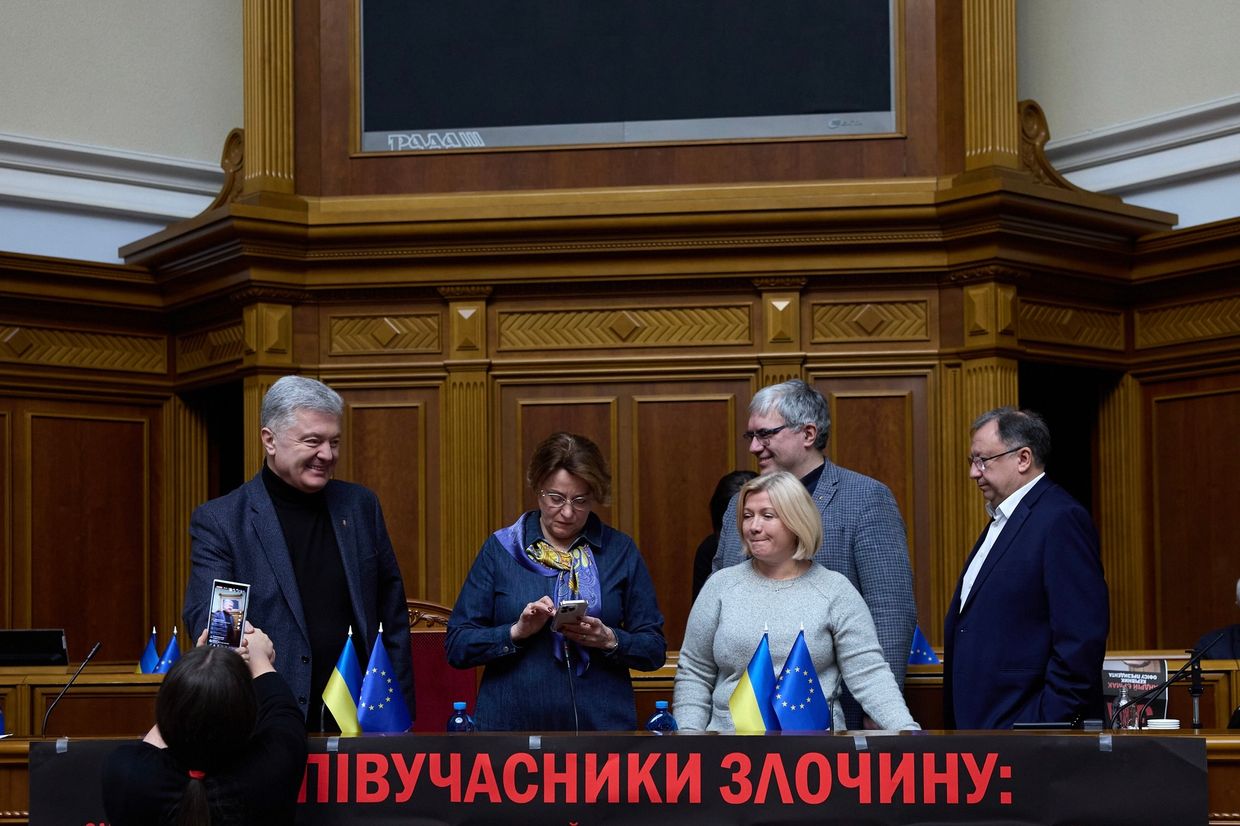
In response to criticism from European partners, Ruslan Stefanchuk, speaker of the Ukrainian parliament, said that sanctions against Poroshenko are "in no way a substitute" for the criminal cases against him.
"These are not political issues but legal ones. The final decisions should be made exclusively by the court, as is customary in countries with stable democracies," Stefanchuk said.
According to Fesenko, sanctions could prevent Poroshenko from actively participating in political and information campaigns.
At the same time, experts don't see Poroshenko as a competitor for Zelensky, given the results of multiple polls. Sanctions against him may consolidate Poroshenko's backers and harm Zelensky's popularity, but are unlikely to change this tendency, experts say.
"The war with Russia is not over yet, and we are starting internal political wars," Fesenko said.
"Unfortunately, Zelensky's opponents are also waging an open war against him. It is mostly informational, a little bit political. But a war is a war."
